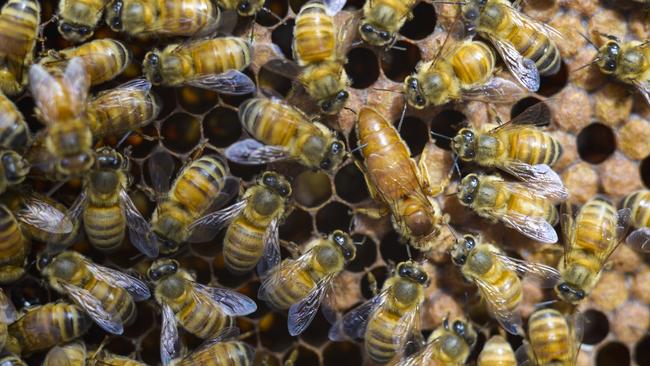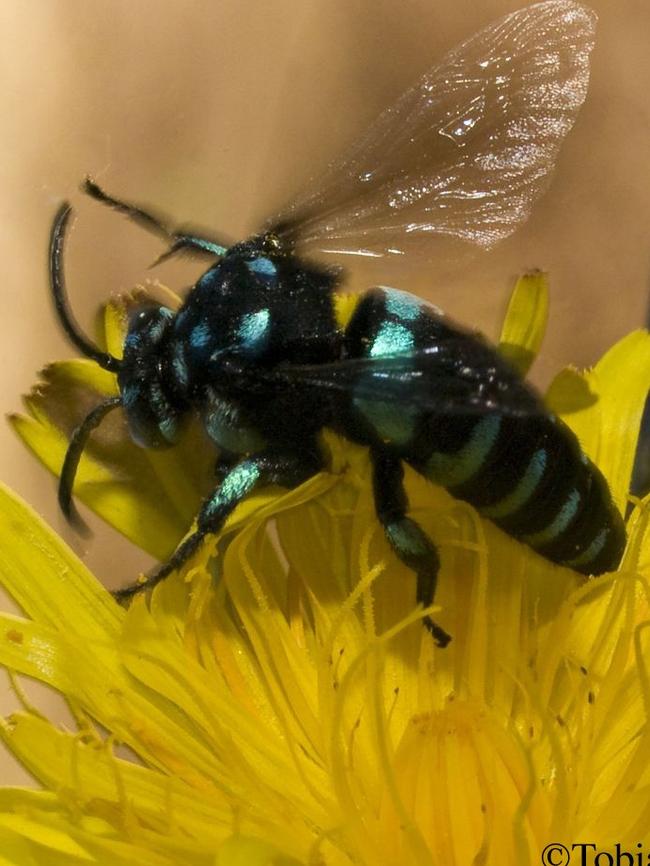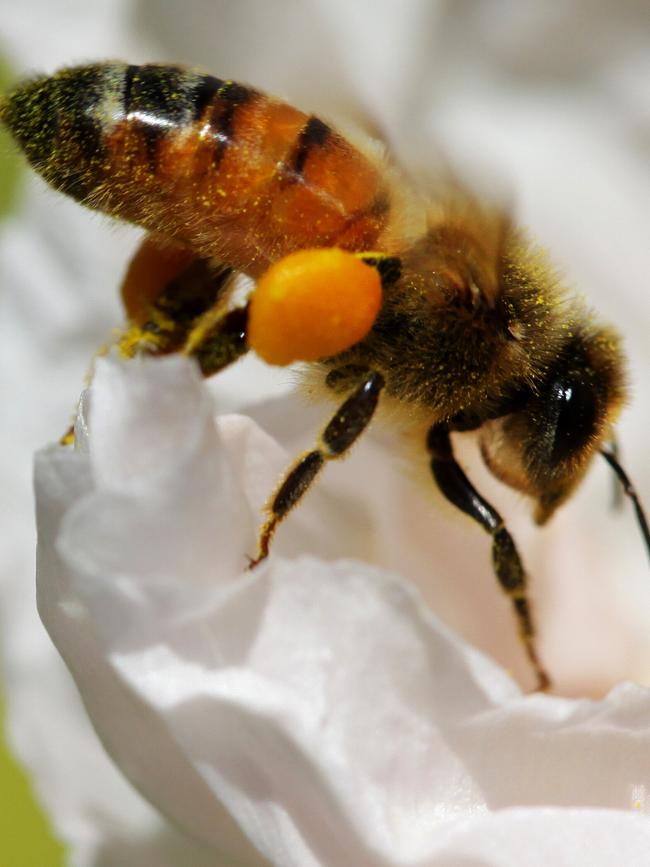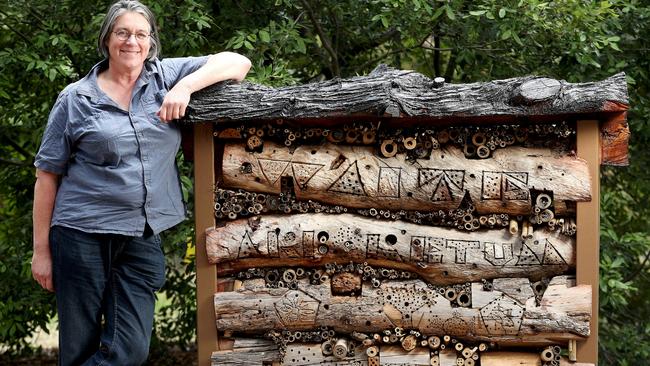Katja Hogendoorn: Keeping honey bees in the backyard hurts native bees, birds and other animals
Backyard beehives are trendy, but here, they do more harm than good for a whole lot of reasons, writes Katja Hogendoorn.
Opinion
Don't miss out on the headlines from Opinion. Followed categories will be added to My News.
A tragedy is unfolding in Adelaide’s suburban gardens.
Urban beekeeping is on the rise, and this is bad news for urban biodiversity. In spring, feral honey bee colonies in trees and backyard hives are spewing out swarms, which search for new places to nest.
These bees all belong to a single species, the European honey bee, introduced in Australia in the 1820s. Australia has more than 1650 native bee species, mostly solitary.
MORE: Backyard beekeeping is “selfish, dangerous”

In native vegetation and urban areas, the European honey bee is an invasive pest and nuisance. Most people are surprised to hear this, because bees are important pollinators.
This is true – horticulture couldn’t function without them. But the one does not preclude the other. For example, we appreciate goats for milk and cheese, but in nature goats are an invasive pest. The same holds true for honey bees for two main reasons.
First, swarms move into tree hollows and nest boxes that are used by native birds and mammals, such as owls, cockatoos, gliders and possums.
They can usurp occupied hollows and sting helpless nestlings to death.
Feral hives reach high densities in Adelaide. For example, the trees on the Waite campus and arboretum are home to more than 50 feral colonies in an area just over 8000sqm. During the swarming season, swarms are a nuisance as they move into people’s homes, and swarms can be costly to remove.
Second, honey bees compete for nectar with native animals, insects and birds, such as honeyeaters. According to University of Adelaide Professor David Paton, 80 per cent of all nectar and pollen in South Australia’s native vegetation is removed by honey bees. The pollen carried by just three bees returning to the hive is enough to raise an average native bee – bees are raised on pollen.
The pollen removed by the 6000 registered backyard hives in spring equates to potential food for 600 million native bees.


Nectar and pollen are food for many flying insects, which, in turn, are eaten by insect-eating birds such as willy wagtails, robins and flycatchers – all in decline.
Many mistakenly think they are doing good by taking up beekeeping. But honey bees are not in danger and pollination is not under threat. But the landscape contains fewer flowers for native birds and insects. So taking a backyard hive means adding mouths to feed – and the honey bees are fierce competitors.

So what is the solution? Planting food for bees is a worthwhile activity I regularly promote. But we cannot even plant enough to support all those backyard hives and feral honey bee colonies. Therefore, I advocate killing the swarms, removing feral hives and discouraging backyard beehives in greater Adelaide.
Before you take up backyard beekeeping, have a thought about the effects on urban biodiversity. And if you like honey, it is cheaper for you, and better for the environment, to buy it from a beekeeper at a local farmers’ market.
Dr Katja Hogendoorn is a researcher at the University of Adelaide




